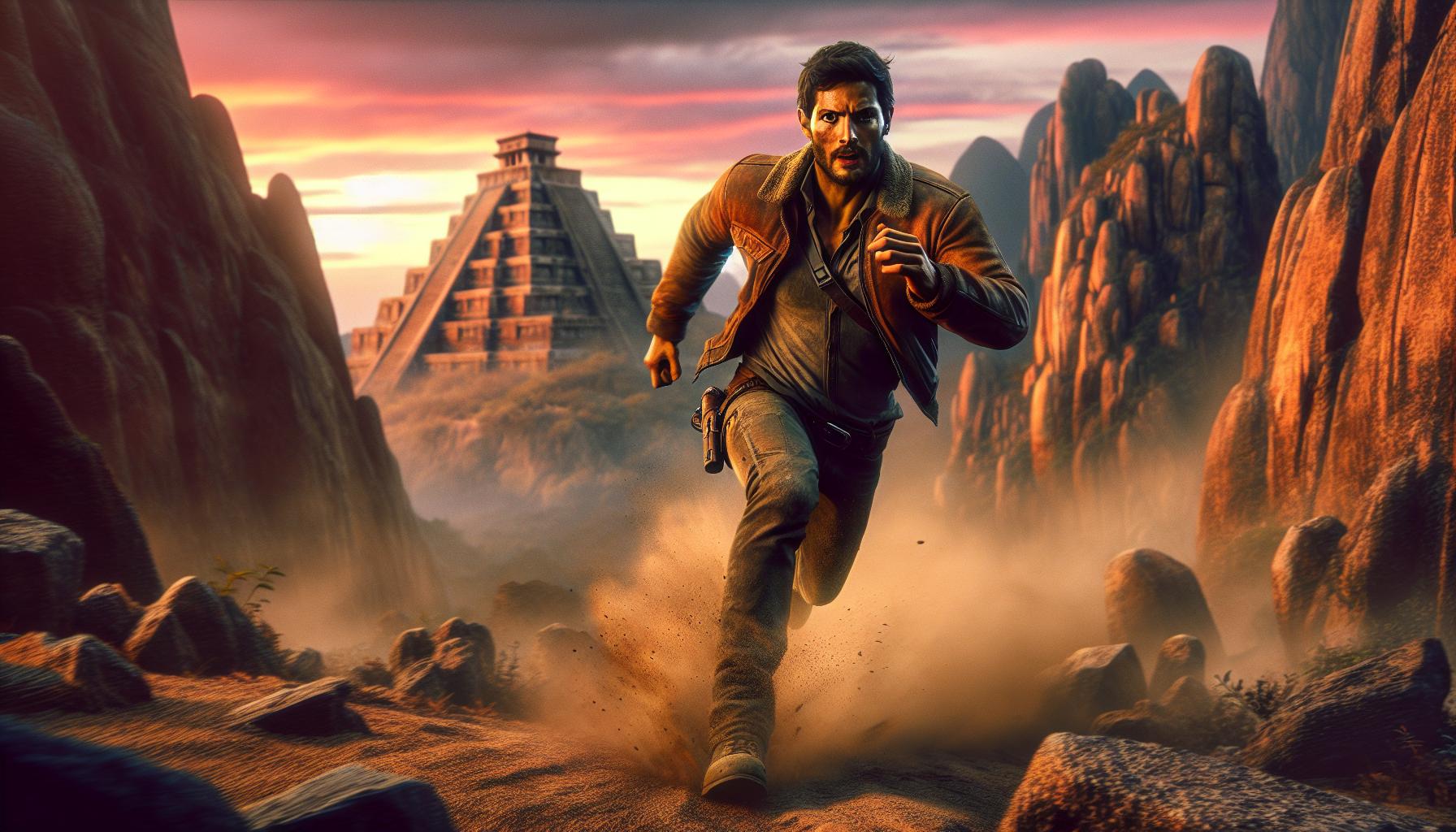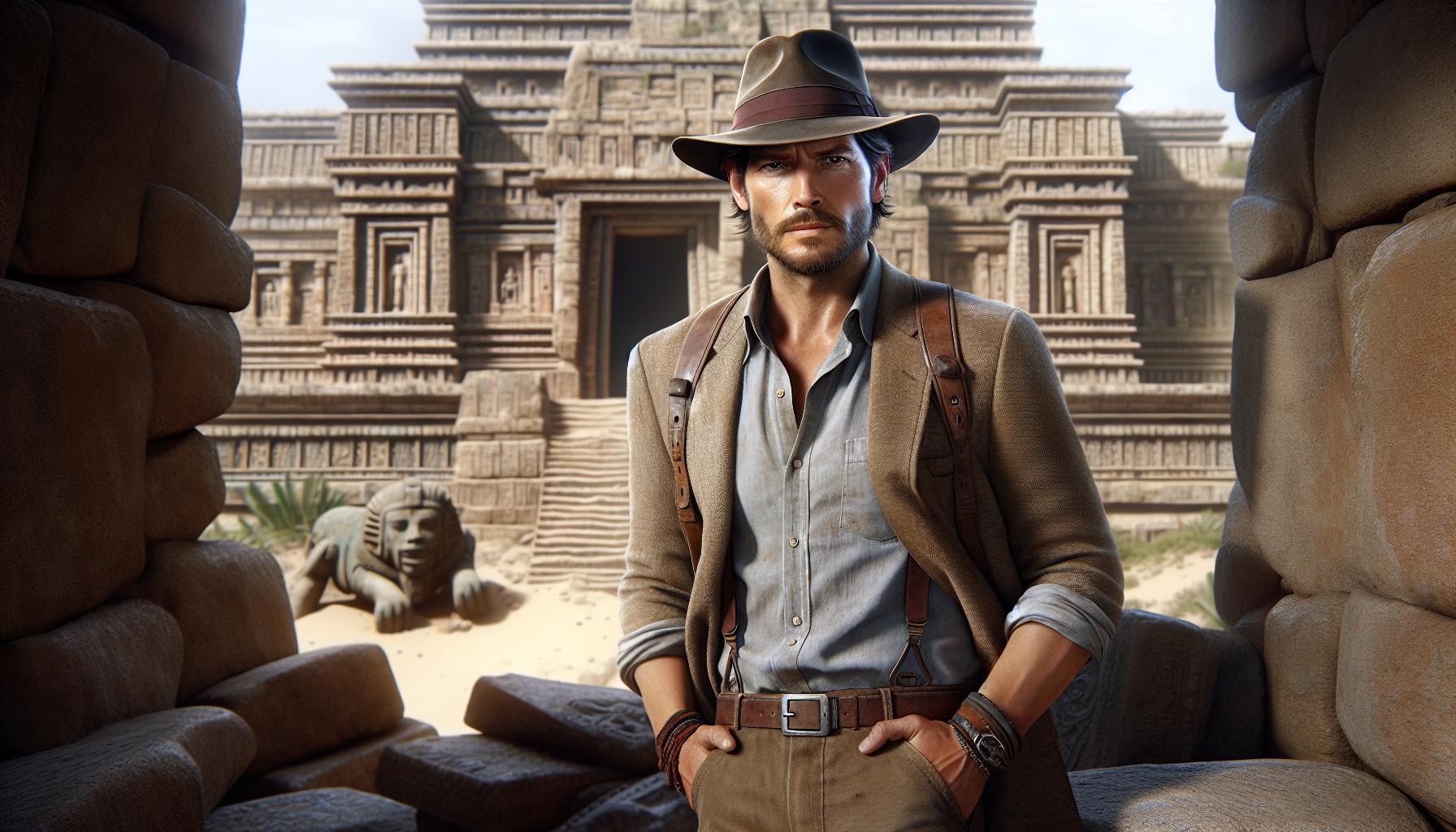Phone:
(701)814-6992
Physical address:
6296 Donnelly Plaza
Ratkeville, Bahamas.

Action-adventure movies transport viewers into heart-pounding worlds of excitement where heroes face impossible odds and villains scheme their way through elaborate plots. From explosive car chases to death-defying stunts these films deliver pure adrenaline-fueled entertainment that keeps audiences on the edge of their seats.
Over the decades Hollywood has mastered the art of blending intense action sequences with compelling storytelling. Whether it’s watching Indiana Jones outrun giant boulders or seeing Ethan Hunt scale the world’s tallest buildings the best action-adventure films create unforgettable moments that define pop culture. These movies don’t just offer mindless explosions – they craft immersive experiences that combine spectacular visual effects with character-driven narratives that resonate with viewers long after the credits roll.
A great action-adventure movie combines dynamic elements to create an immersive cinematic experience. The most successful films in this genre master specific components that elevate them above standard entertainment.
Action-adventure movies thrive on high-stakes conflicts exemplified through intense chase sequences, elaborate fight scenes or explosive set pieces. A compelling protagonist faces physical challenges while pursuing clear objectives against formidable antagonists. The setting plays a crucial role by providing exotic locations like ancient temples, remote islands or futuristic cities. Technical elements include:
Strong narratives transform action sequences from isolated spectacles into meaningful story progression. Character development occurs through challenges faced during intense moments rather than exposition. Plot elements include:
The most memorable films integrate character arcs seamlessly with action set pieces creating emotional resonance alongside visual thrills.

Several groundbreaking films from the 1980s established the blueprint for modern action-adventure movies, combining innovative storytelling techniques with spectacular action sequences.
Raiders of the Lost Ark revolutionized action-adventure cinema in 1981 with its masterful blend of archaeology, mysticism, and high-stakes adventure. Harrison Ford’s portrayal of Indiana Jones created an iconic character archetype: the rugged academic who transitions seamlessly from university lectures to death-defying escapades. The film’s opening sequence in a booby-trapped temple establishes three key franchise elements: supernatural artifacts, elaborate action setpieces, and precise pacing. Director Steven Spielberg crafted memorable scenes like the Cairo marketplace chase and the desert truck pursuit that combine practical effects with real stunts. The subsequent films (Temple of Doom, Last Crusade) expanded the formula with enhanced production values and deeper character development.
Die Hard transformed action cinema in 1988 by introducing a vulnerability to its protagonist that previous films lacked. Bruce Willis portrays John McClane as an everyday cop facing extraordinary circumstances in Nakatomi Plaza. The film confines its action to a single location, creating claustrophobic tension through tactical encounters between McClane and Hans Gruber’s terrorists. Director John McTiernan employs innovative cinematography techniques to showcase the vertical nature of the building’s architecture. The movie balances intense action sequences with character-driven moments, establishing the “lone hero against overwhelming odds” template. Technical elements like Michael Kamen’s score and Jan de Bont’s cinematography elevate the film’s production value.
Contemporary action-adventure films have redefined the genre with groundbreaking visual effects, complex narratives, and sophisticated character development. These modern masterpieces combine cutting-edge technology with compelling storytelling to create immersive cinematic experiences.
Christopher Nolan’s Batman trilogy revolutionized superhero action-adventure films through its gritty realism and psychological depth. “Batman Begins” (2005) established Bruce Wayne’s origin story with practical effects and martial arts sequences. “The Dark Knight” (2008) elevated the series with Heath Ledger’s Oscar-winning performance as the Joker, featuring intense vehicle chases and elaborate heist sequences. “The Dark Knight Rises” (2012) concluded the saga with massive practical stunts, including a mid-air plane hijacking sequence. The trilogy’s practical effects, IMAX cinematography and Hans Zimmer’s score created a realistic atmosphere that transformed comic book adaptations into serious action-adventure cinema.
Tom Cruise’s dedication to performing real stunts defines the Mission Impossible series’ authentic action sequences. “Ghost Protocol” showcased Cruise climbing Dubai’s Burj Khalifa, while “Fallout” featured a HALO jump filmed in a single take. Each film incorporates advanced surveillance technology, international espionage, and complex heist sequences. The franchise maintains tension through intricate plots involving global threats, double agents, and time-sensitive missions. Director Christopher McQuarrie’s recent entries blend sophisticated storytelling with practical stunts, including motorcycle chases, helicopter battles, and mountain climbing sequences filmed without green screens or CGI doubles.
Edge of Tomorrow (2014) offers a unique blend of science fiction combat with time-loop mechanics, featuring Tom Cruise as a soldier who gains the ability to reset time upon death during an alien invasion.
Dredd (2012) delivers intense action sequences in a dystopian setting, following Judge Dredd’s methodical assault through a 200-story tower controlled by drug lord Ma-Ma.
The Man from Nowhere (2010) showcases Korean cinema’s action expertise through stylish fight choreography, telling the story of a mysterious ex-special agent protecting a child from drug traffickers.
Upgrade (2018) combines brutal hand-to-hand combat with technological innovation, presenting a paralyzed man who receives an AI implant that transforms him into a lethal fighting machine.
13 Assassins (2010) masterfully executes samurai action sequences, culminating in a 45-minute battle scene where a small group of warriors faces an army in feudal Japan.
| Movie | Release Year | Notable Feature |
|---|---|---|
| Edge of Tomorrow | 2014 | Time-loop combat mechanics |
| Dredd | 2012 | Single-location siege action |
| The Man from Nowhere | 2010 | Korean martial arts choreography |
| Upgrade | 2018 | AI-enhanced combat scenes |
| 13 Assassins | 2010 | Extended climactic battle |
These films demonstrate exceptional action choreography without relying on extensive CGI effects. Each movie creates tension through practical effects mixed with strategic storytelling elements. The protagonists face overwhelming odds against unique antagonists in confined spaces or specific time constraints.
International action movies revolutionized the genre by introducing innovative fight choreography sophisticated storytelling techniques unique cultural perspectives to global audiences.
Asian cinema transformed action movies through groundbreaking martial arts choreography technical innovations in the 1990s 2000s. Hong Kong director John Woo pioneered gun fu in films like “Hard Boiled” combining balletic gunfights with intricate camera work. South Korean cinema elevated action storytelling with “Oldboy” featuring a legendary single-take corridor fight scene that influenced Hollywood productions. Japanese films like “Battle Royale” introduced intense survival action concepts later adapted by Western filmmakers. Thailand’s “Ong-Bak” showcased Tony Jaa’s Muay Thai skills through practical stunts without wire work or CGI. Chinese wuxia films such as “Crouching Tiger Hidden Dragon” merged martial arts with breathtaking cinematography earning international acclaim Academy Awards.
European action films blend sophisticated narratives with intense action sequences distinct from Hollywood conventions. French parkour-inspired “District B13” introduced dynamic urban chase sequences through Paris streets. British film “Layer Cake” combines crime thriller elements with sharp action set pieces. Spanish thriller “[REC]” created claustrophobic action horror using found footage techniques. German production “Run Lola Run” revolutionized action pacing through innovative time loop storytelling. Swedish film “Let the Right One In” merged vampire action with atmospheric Nordic noir elements. Russian blockbuster “Night Watch” showcased supernatural action with distinctive visual effects complex mythology creating a unique contemporary fantasy world.
Action adventure cinema transformed from simple chase sequences in the 1960s to complex multimedia experiences in modern times. Digital technology revolutionized special effects, replacing practical stunts with computer-generated imagery (CGI) that creates spectacular action sequences.
Storytelling complexity increased dramatically through the decades, as shown in this progression:
| Era | Key Changes | Notable Examples |
|---|---|---|
| 1960s | Basic stunts, linear plots | The Great Escape |
| 1980s | Practical effects, character depth | Raiders of the Lost Ark |
| 2000s | CGI integration, complex narratives | The Dark Knight |
| 2020s | Virtual production, hybrid techniques | Top Gun: Maverick |
Modern action adventures incorporate diverse filmmaking elements:
Contemporary audiences expect deeper character development alongside spectacular action sequences. Films like “Black Panther” combine cultural storytelling with advanced visual effects. Production techniques blend practical stunts with digital enhancements, demonstrated in “Mission: Impossible – Fallout” where Tom Cruise performs real stunts enhanced by CGI elements.
Global influences reshape traditional action formulas. Asian martial arts choreography influences Western fight scenes. European-style realistic action sequences impact Hollywood productions. Streaming platforms expand creative boundaries through extended storytelling formats mixed with cinematic production values.
Action-adventure movies continue to captivate audiences through their perfect blend of thrilling sequences dynamic storytelling and unforgettable characters. From the groundbreaking classics of the 1980s to today’s technologically advanced blockbusters these films push creative boundaries while delivering pure entertainment.
The genre’s evolution spans decades of innovation incorporating diverse cultural influences and cutting-edge technology. Whether it’s practical stunts CGI effects or compelling narratives modern action-adventure films offer something for everyone. As filmmaking techniques advance and storytelling becomes more sophisticated viewers can expect even more exciting developments in this beloved genre.